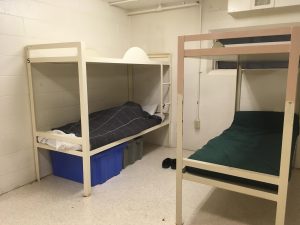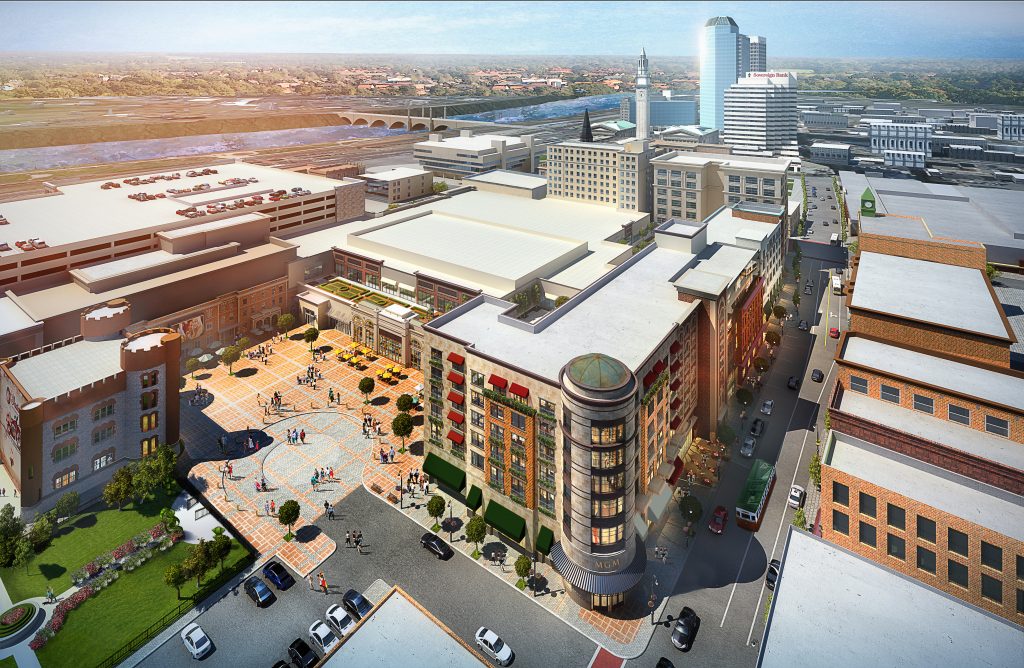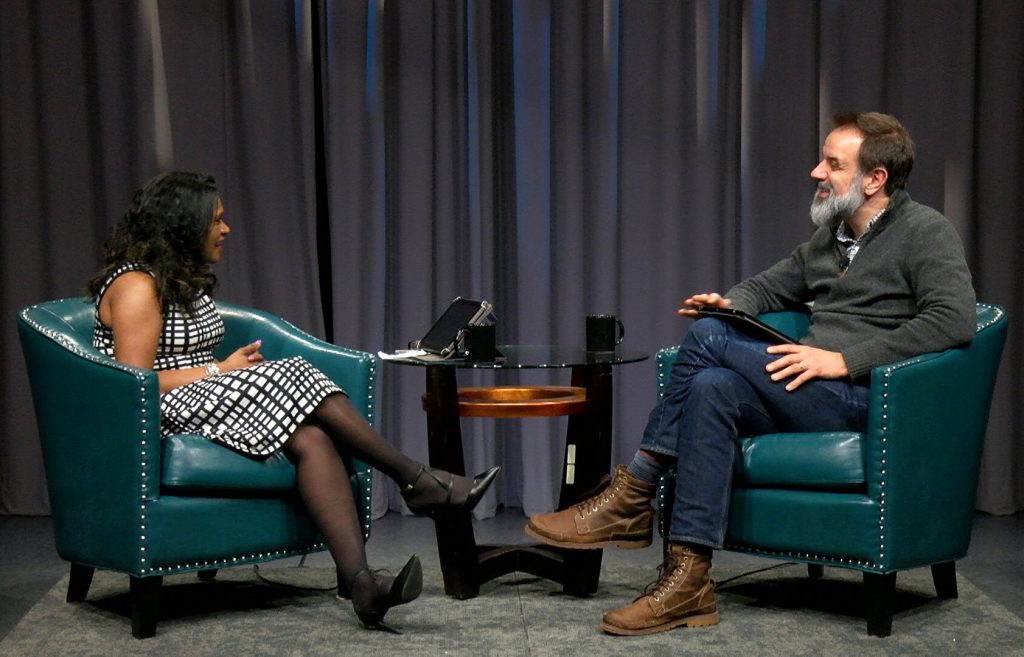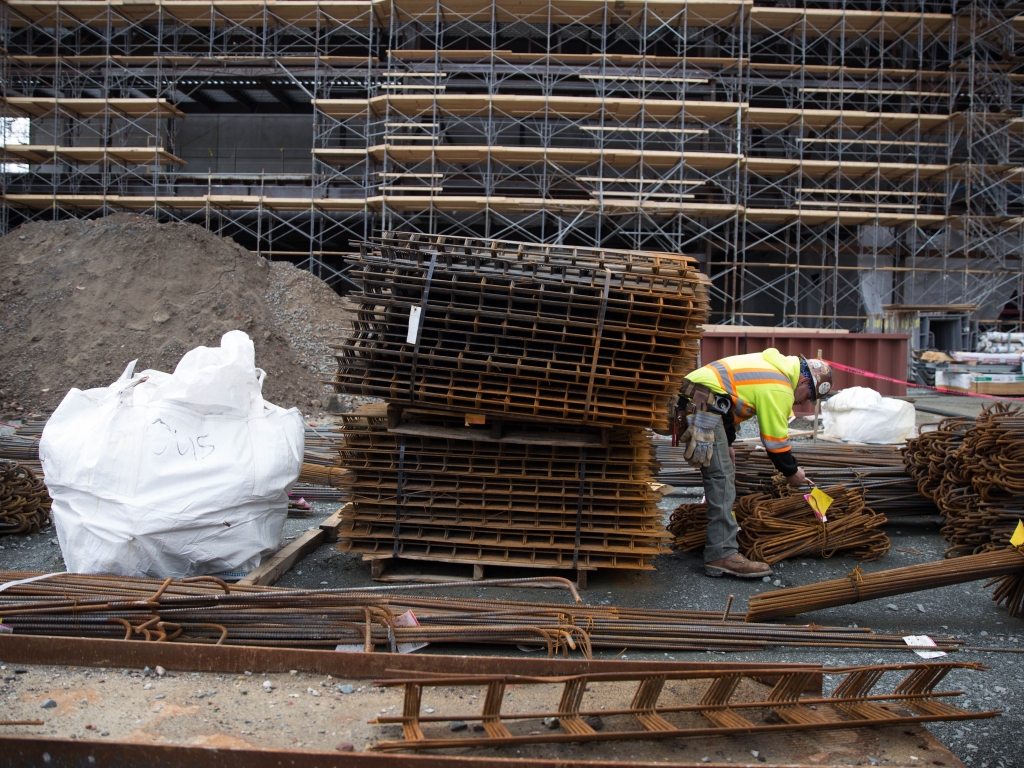Episode 36: A Roll of the Dice

This week: Immigration and Customs Enforcement has been directed to begin detaining and deporting all unauthorized immigrants. We’ve talked about sanctuary cities, but what about jurisdictions where law enforcement does report to ICE? We look at the very different approaches taken by Vermont and New Hampshire. Later, we visit the front lines of a border war between competing casino developments. Plus, we meet New England’s other NEXT.
What Roles Are States Playing in Immigration Enforcement?
A case in front of the Massachusetts Supreme Judicial Court this past week could determine how much local law enforcement is able to cooperate with federal immigration officials.
We’ve been covering stories like this in so-called sanctuary cities, but this case applies to entire states. The court will decide whether local law enforcement officers are authorized to detain a person solely at the request of ICE. WBUR’s Shannon Dooling has been following the case.

A woman lies motionless in her bunk at the Strafford County Jail in Dover, NH. This part of the jail is designated for women detained by ICE who face no criminal charges, only federal immigration violations. Photo by Emily Corwin for NHPR
The directive from the Trump White House to immigration enforcement to begin detaining and deporting all unauthorized immigrants has stirred up a series of legal questions around our region. The new policy marks a change from Obama-era directives, which directed agents to prioritize deporting individuals convicted of serious crimes.
But how do immigration agents find undocumented but otherwise law-abiding immigrants? It turns out there are big differences between states, including in neighboring Vermont and New Hampshire. We speak with with New Hampshire Public Radio’s Emily Corwin and Vermont Public Radio’s Kathleen Masterson.
Is a Casino the Answer to Springfield’s Woes?
“Springfield, Massachusetts” and “resort casino” aren’t words you expect to see in the same sentence. But if you live in the area, you’ve been hearing about a casino coming to town for years.
On three blocks in the city’s struggling downtown, MGM Resorts is building that casino with a hotel, movie theater, skating rink, and other amenities, set to open in fall 2018.

An artist rendering of the MGM Springfield resort casino, with hotel rotunda in front view. The original plan included a glass skyscraper. Image courtesy of MGM Springfield.
Construction began two years ago, but the political groundwork was laid back in 2011, with two separate events. That June, two tornadoes ripped through the area, causing 17 miles of damage, including right in the heart of downtown. Officials there wondered what to do to rebuild.
Then, in the fall of that year, hoping to recapture some of the gambling dollars that had been leaving Massachusetts for years, the legislature passed the Expanding Gaming Act, allowing for three casinos to be built, including one in the western part of the state. After a lengthy process, Springfield won that bid. MGM got the contract, and broke ground in March 2015.
But Connecticut’s two federally-recognized Indian tribes, long the beneficiaries of those Massachusetts customers, got worried about losing their market share.
Connecticut officials were also concerned, since through a tribal gaming compact the state receives 25 percent of the gaming revenue at Foxwoods and Mohegan Sun. So the the Mohegans and Mashantucket Pequots formed a partnership with Connecticut’s help to build a new casino in the Hartford metro area.

The vacant Showcase Cinemas in East Windsor, Connecticut is the site where Connecticut’s Mohengan and Mashantucket Pequot tribes want to build a casino, 14 miles south of MGM Springfield. Photo by Henry Epp for NEPR
This February, the tribes announced they had chosen a site off Interstate 91 in East Windsor — just 14 miles south of the MGM casino in Springfield. East Windsor is on board, but the tribes need a new law to allow them to operate the casino. And proposals are currently tied up in the state legislature.
Whether the East Windsor casino goes forward or not, the big question for the city of Springfield is whether the massive development will give the city the economic boost it sorely needs.
We visit the MGM construction site and chat with MGM Springfield president Mike Mathis, as well as city councilor and casino booster Melvin Edwards.
For a more critical perspective, we sit down with Mike Dobbs, managing editor of the local newspaper The Reminder, who has been covering the Springfield project over the years; and WNPR business editor Harriet Jones, who covers the Connecticut casino proposal.
The Other NEXT

John Dankosky interviews host Elaine Bourhan on the set of New England’s Xtrordinary Talent at the studios of Focus Springfield. Photo courtesy of Focus Springfield
Just northwest of the casino site, a friendly storefront houses the local cable access TV station, Focus Springfield. MGM now owns the building, and Focus is getting evicted. They have to move by November.
It just so happens that one of the shows that tapes there is also called NEXT. In their case, it stands for “New England’s Xtrodinary Talent.” (In our case, if you’ve been wondering, it doesn’t stand for anything.)
Host Elaine Bourhan, who goes by Elaine B, is a local musician who also scouts talent for the show. We speak with her about some of her favorite guests on the program.
Below: interviews and a performance by Western Massachusetts locals Charles Neville and son Khalif Neville on New England’s Xtrodinary Talent.
While we were on set, Elaine also interviewed us! We’ll let you know when that’s posted.
About NEXT
NEXT is produced at WNPR.
Host: John Dankosky
Producer: Andrea Muraskin
Executive Producer: Catie Talarski
Digital Content Manager/Editor: Heather Brandon
Contributors to this episode: Shanoon Dooling, Emily Corwin, Kathleen Masterson, Michael Dobbs, Harriet Jones
Music: Todd Merrell, “New England” by Goodnight Blue Moon
We appreciate your feedback! Send praise, critique, suggestions, questions, story leads, and hidden talents to next@wnpr.org.


